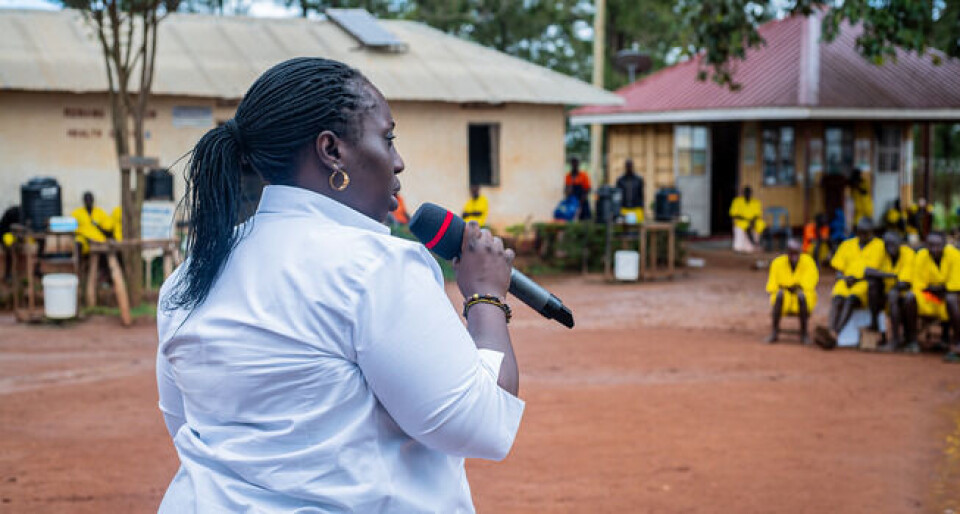Copyright : Re-publication of this article is authorised only in the following circumstances; the writer and Africa Legal are both recognised as the author and the website address www.africa-legal.com and original article link are back linked. Re-publication without both must be preauthorised by contacting editor@africa-legal.com
Promoting community service over jail time

In Mubembe District, Central Uganda, Justice Defenders holds massive awareness sessions in and out of the local prison to empower the community with legal knowledge, and campaigns for alternatives to incarceration. Paul Ogemba found out more.
The Mubembe district serves as the nerve centre for Justice Defenders’ operations in Uganda, where they facilitate alternative dispute resolutions, plea bargaining, and decongestion of the overcrowded local prison by advocating for non-custodial sentences.
According to Joanita Asiimwe, Justice Defenders’ Legal Practice Manager in Uganda, their motivation for pushing alternative resolutions for criminal cases is due to the high number of offenders who go to jail purely due to a lack of legal empowerment.
“We are not just pushing for people to plead guilty during plea bargaining to avoid going to prison, we are also facilitating talks with the victims to accept the apology from the offenders as part of our legal awareness campaigns,” Asiimwe explained.
Navigating the justice system in Uganda is not easy given that most prisons are situated on farms away from the cities, and generally house more than five times the number of inmates they were designed to host.
Asiimwe says most of their work is concentrated in the prisons where they offer paralegal training sessions, free legal representation to the vulnerable, community sensitisation, and help petty offenders get proportionate sentences through plea bargaining.
Thanks to Justice Defenders’ efforts, the Ugandan judiciary has embraced community service as a form of punishment and is gradually starting to refer some offences for plea bargaining.
“Before Justice Defenders started promoting plea bargaining, it was difficult for courts in Uganda to give community service as an alternative to incarceration. Ugandans are very litigious people and only want to see criminal offenders going to jail,” commented Asiimwe.
Having helped to push for the abolition of the mandatory death penalty in Uganda, Justice Defenders has embarked on further legislative advocacy in an effort to get certain sections of criminal laws repealed because they are unfair to those in conflict with the law.
Among these laws is the provision that criminal offenders suffering from mental illnesses be held in prison at the pleasure of the minister in charge of prisons. “We have over 40 mentally ill persons (that we’re working with); some have spent 30 years in prison because they are waiting for the minister to authorise their release. We have petitioned both the High Court and Parliament to repeal that law because we feel once a doctor adjudges someone to be mentally ill, the person should be released,” Asiimwe said.
Another big issue Justice Defenders is petitioning against involves people spending indefinite periods incarcerated because their case files have been lost. Asiimwe says that some offenders stay in jail for years because their files are missing from the court records, and Justice Defenders wants the High Court to declare that no person should be kept in prison because of a missing file.
In addition to these efforts, Justice Defenders is grappling with emerging judicial injustices like politically motivated legislation designed to punish political dissidents, civilians being court-martialled, and restrictions being placed on the areas in which Justice Defenders can operate.
Resistance to community service as a punishment is still a challenge, but Asiimwe says they are determined to entrench it as an alternative to incarceration to help the people embrace mediation.
To join Africa Legal's mailing list please click here
